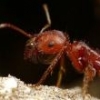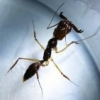Is there a scenario where a queen gives birth to a young queen and a male drone, and then the male drone fertilizes the young queen. I am trying to think ahead to see how a species can continue its lineage in captivity.
Edited by Tagassi, March 14 2017 - 4:21 PM.


















